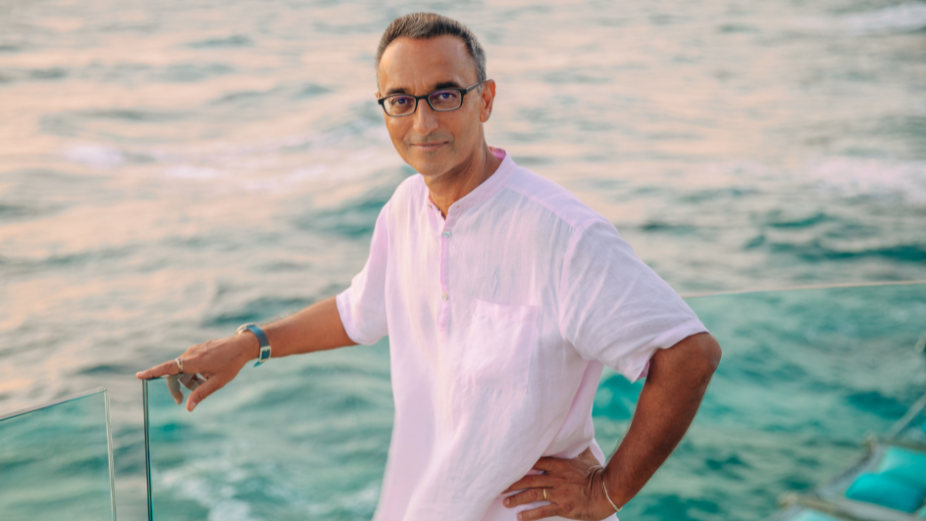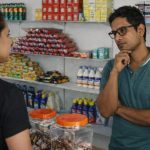
By Sonu Shivdasani
Like many people across the Maldives and India, I was appalled to read the disparaging remarks made recently on social media by three junior Maldivian ministers towards Indian Prime Minister Narendra Modi. The comments were rude, offensive and xenophobic. As a pioneer in the Maldives Tourism industry, recognized by the Government during the ’50 Years of Tourism’ anniversary celebrations, as well as a corporate resident spending nearly half of the year in the country, the uproar the comments caused – leading to calls in India to boycott Maldives – has been deeply concerning.
Subhash Goyal, the Chairman of the Aviation and Tourism Committee for the Indian Chamber of Commerce and Founder and Chairman of STIC Travel Group – one of the largest travel businesses in India – asked all Indian travel agents and tour operators and Indian airlines to suspend their operations in Maldives. Prominent Indian travel website, EaseMyTrip, announced it was suspending flight bookings from India to the Maldives. There are many other such examples. Indian travel agents that usually book the Maldives said that bookings are down 40%.
President Muizzu must be congratulated for suspending the deputy ministers and clarifying that their remarks do not represent official policy, which was a small ray of sunshine in a stormy week. The irony of this situation is that the three junior ministers’ salaries were paid by taxes that largely come from the tourism industry. Moreover, their jobs are to work for the benefit of the population as a whole and to pursue prosperity for the country. Their behaviour has achieved the exact opposite.
Our Dependence on Indian Tourism and more
I appreciate that if this op-ed appears on social media, it will no doubt be attacked by the same internet trolls who have helped to whip things up over the past couple of weeks. Yet, anti-Indian sentiment has costs to the lives of many Maldivians. As a resident here, I personally felt the impact last week. I was waiting to carry out a medical procedure that had to be cancelled because the hospital in Maldives could not get the required product as their Indian supplier’s export license had been revoked. I suspect that my case is not isolated, and others living in the Maldives – both Maldivians and foreigners – are suffering in similar ways. Eighty-five per cent of Maldivians who travel to India go there for medical purposes. As a country, we are dependent on India for more than just its tourism.
Tourism is critical to the Maldivian economy, with up to 90% of economic activity linked to the industry in some way. According to the World Bank, in 1980, the Maldives was amongst the world’s 20 poorest countries. Today, after 50 years of tourism, the Maldives is a middle-income country with the highest per capita GDP in South Asia, with high life expectancy and literacy rates. Tourism has made the Maldives prosperous; it is the country’s golden goose.
In recent years, Indian tourism has been very important to the Maldives. During the pandemic, when many countries, including China, closed their borders and sent us no tourists, Maldives and India created a ‘travel bubble’ that saw a huge increase in Indian visitors in 2020 and 2021 that shored up Maldivian tourism. Pre-pandemic, there were no direct flights between Maldives and Mumbai or Delhi. Today, there are some five daily flights. Even though Chinese tourism has recommenced, India still remains the largest tourism market. According to the Ministry of Tourism, 209,000 Indians visited the Maldives in 2023. If we assume that each tourist spends an average of four nights and spends somewhere around USD 700 to USD 750 a day between accommodation, food, extras, etc., this will constitute around USD 600 million per year to the Maldivian economy. The 10% service charge that employees working at hotels would receive from this travel is USD 60 million. Indian tourists also form the backbone of guesthouse tourism in Maldives, helping to support small businesses and inject wealth directly into local island communities. If India does boycott the Maldives, it will have a significant impact on many Maldivians.
The intention of previous governments, and the intention of this government, should be to promote tourism in the outer atolls that have still not benefitted to the same extent that Malé and its surrounding atolls have. It has been difficult to establish tourism in the south because there are not enough hotels, and as a result, airlines don’t fly. If tourism is going to expand in the north, it will most likely come from India. For an airline to justify flying a single aisle plane (the small Boeing 737s or Airbus A320s) into an airport, one needs to have about 2,000 hotel beds in the vicinity. For the bigger wide-body jets, the number is more than double that.
It is likely that if relationships improve with India, the Indian carriers will be the first to introduce direct flights to Hanimaadhoo Airport in northern Maldives. That will support existing resorts and encourage the building of more. But an Indian boycott of Maldives will preclude this, undermining the prosperity of people living in the northern Maldives.
India did not just support the Maldives by sending tourists during the pandemic. India also initially gifted 250,000 Oxford Astra Zeneca vaccines produced by the Serum Institute of India, a combined effort by the Indian Government and the family behind Serum. The Poonawallas, who run the Serum Institute, are regular visitors to the Maldives, and it is because they had holidayed so many times in the Maldives and had developed such love for the country and a fondness for Maldivians that they initiated such a generous donation (to the extent that, at one point early in the pandemic, the Maldives ranked amongst the top five countries in terms of the proportion of the population that had received the vaccine).
Balancing India and China
This is not a partisan article promoting India over China. China, prior to the pandemic, was the largest tourism market in the Maldives. Chinese tourist arrivals are recovering, and this year, China will certainly be a top three market.
But it is important for the prosperity of Maldivian tourism that, rather than embracing one regional superpower and rejecting the other, we develop good relations with both of these countries. It is of course correct for Maldivians to question whether they want foreign soldiers based in their country, or whether the Government can afford to take massive loans from India or China. But surely such considerations can be made without unnecessarily antagonising either superpower.
Over the last 30-odd years, entrepreneurs investing in tourism, such as my wife Eva and I, and others who were also honoured at the 50-year Anniversary for Tourism, have not received much marketing support or funding from the Government. However, we have been supported by enlightened policymaking that has endeared the international community and our travel markets to the Maldives. Visionary policies made by different administrations over the past decades, such as the Maldives’ ambitious climate change goals, strong protections for marine life, and banning single-use plastics, have cultivated considerable international goodwill and have enhanced the Maldives’ tourism brand. In an era where politics has become partisan and toxic across the world, it would be visionary for this Government to practice and promote bipartisan policies.
A final word about me: I realise that my recommendations in this op-ed might be misconstrued because of my Indian origin, so I feel compelled to declare that whilst both my mother and father were Indian, I was born and largely brought up in the UK. My education was varied: my father spent a lot of time based out of his offices in Italy and in Nigeria; when I was six, I spent a year in Nigeria; and many months of my youth were spent just outside of Genova in Italy; summer holidays were based at the family home in France; and I spent one of my ‘A-Level’ years studying in Switzerland. For the first four years of my working career, I lived in Geneva, then was based out of Bangkok. More recently, Eva and I spend half the year in the Maldives – a country to which we have made a commitment and invested in for more than 30 years. Of course, I have visited India occasionally and have many great Indian friends. However, India would just about get into the top 10 of the countries where I have spent most of my life and feel the most at home.
About the author: Sonu Shivdasani is the CEO and Founder of luxury resort chain Soneva.












